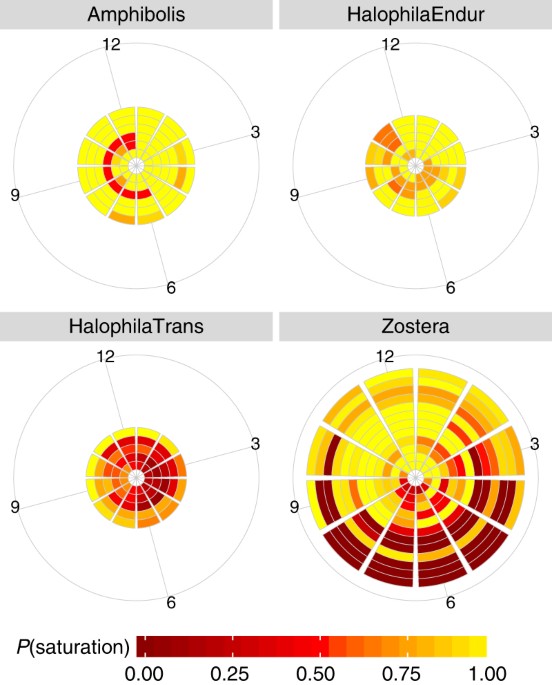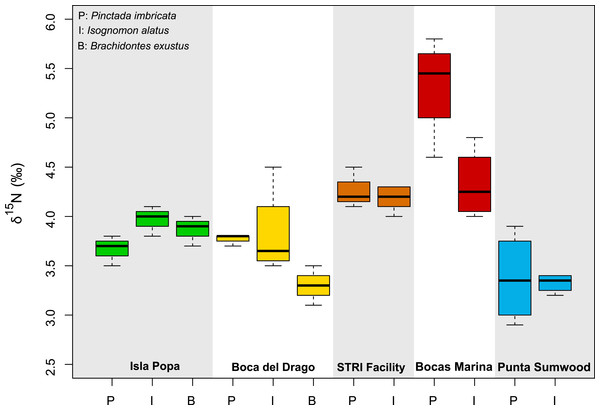Valiela Marine Ecological Processes Pdf
Posted : admin On 14.01.2020Author: Deborah Greaves,Gregorio IglesiasPublisher: John Wiley & SonsISBN: Category: SciencePage: 720View: 9577A comprehensive text covering all aspects of wave and tidal energy Wave and Tidal Energy provides a comprehensive and self-contained review of the developing marine renewable energy sector, drawing from the latest research and from the experience of device testing. The book has a twofold objective: to provide an overview of wave and tidal energy suitable for newcomers to the field and to serve as a reference text for advanced study and practice. Including detail on key issues such as resource characterisation, wave and tidal technology, power systems, numerical and physical modelling, environmental impact and policy. The book also includes an up-to-date review of developments worldwide and case studies of selected projects.
Ecological Processes Definition
Key features: A comprehensive and self-contained text covering all aspects of the multidisciplinary fields of wave and tidal energy. Draws upon the latest research in wave and tidal energy and the experience of leading practitioners in numerical and laboratory modelling.
Regional developments worldwide are reviewed and representative projects are presented as case studies. Wave and Tidal Energy is an invaluable resource to a wide range of readers, from engineering students to technical managers and policymakers to postgraduate students and researchers. A Practical ApproachAuthor: Keith HiscockPublisher: RoutledgeISBN: Category: NaturePage: 318View: 6437Effective marine biodiversity conservation is dependent upon a clear scientific rationale for practical interventions. This book is intended to provide knowledge and tools for marine conservation practitioners and to identify issues and mechanisms for upper-level undergraduate and Masters students. It also provides sound guidance for marine biology field course work and professionals. The main focus is on benthic species living on or in the seabed and immediately above, rather than on commercial fisheries or highly mobile vertebrates. Such species, including algae and invertebrates, are fundamental to a stable and sustainable marine ecosystem.

The book is a practical guide based on a clear exposition of the principles of marine ecology and species biology to demonstrate how marine conservation issues and mechanisms have been tackled worldwide and especially the criteria, structures and decision trees that practitioners and managers will find useful. Well illustrated with conceptual diagrams and flow charts, the book includes case study examples from both temperate and tropical marine environments. The Foundation of Biodiversity ResearchAuthor: Mark F.

Watson,Chris H. Lyal,Colin A.
PendryPublisher: Cambridge University PressISBN: Category: NaturePage: N.AView: 563In an age when biodiversity is being lost at an unprecedented rate, it is vital that floristic and faunistic information is up to date, reliable and easily accessible for the formulation of effective conservation strategies. Electronic data management and communication are transforming descriptive taxonomy radically, enhancing both the collection and dissemination of crucial data on biodiversity. This volume is written by scientists at the forefront of current developments of floras and faunas, along with specialists from applied user groups. The chapters review novel methods of research, development and dissemination, which aim to maximise the relevance and impact of data. Regional case studies are used to illustrate the outputs and impacts of taxonomic research. Integrated approaches are presented which have the capacity to accelerate the production of floras and faunas and to better serve the needs of a widening audience.
Author: Ivan ValielaPublisher: SpringerISBN: Category: SciencePage: 702View: 5148The oceans represent a vast, complex and poorly understood ecosystem. Marine Ecological Processes is a modern review and synthesis of marine ecology that provides the reader with a lucid introduction to the intellectual concepts, approaches, and methods of this evolving discipline. Comprehensive in its coverage, this book focuses on the processes controlling marine ecosystems, communities, and populations and demonstrates how general ecological principles-derived from terrestrial and freshwater systems as well-apply to marine ecosystems.
Global warming and increased eutrophication and wetland destruction in recent years has made the study of ecological processes even more important for the preservation of marine environments. This thoroughly updated and expanded edition will provide students of marine ecology, marine biology, and oceanography with numerous illustrations, examples, and references which clearly impart to the reader the current state of research in this field: its achievements as well as unresolved controversies.
Author: Ernst HaeckelPublisher: BoD – Books on DemandISBN: Category:Page: 400View: 8898'Die Natur erzeugt im ihrem Schosse eine unerschopfliche Fulle von wunderbaren Gestalten, durch deren Schonheit und Mannigfaltigkeit alle vom Menschen geschaffenen Kunstformen weitaus ubertroffen werden.' Der Naturwissenschaftler Ernst Haeckel stellt in seinem Werk asthetische Formen aus Bereichen der Botanik und der Zoologie zusammen.
Zahlreiche Schwarzweiss- und Farbabbildungen. Nachdruck der Komplettausgabe von 1904 mit 100 Tafeln und dem 'Supplement-Heft'. Author: Jerry D. Wiggert,Raleigh R. Naqvi,Kenneth H. Brink,Sharon L.
SmithPublisher: John Wiley & SonsISBN: 111867166XCategory: SciencePage: 429View: 9952Published by the American Geophysical Union as part of the Geophysical Monograph Series, Volume 185. Indian Ocean Biogeochemical Processes and Ecological Variability provides a synthesis of current knowledge on Indian Ocean biogeochemistry and ecology and an introduction to new concepts and topical paradigm challenges. It also reports on the development of more extensive/frequent observational capacity being deployed in the Indian Ocean.
This represents the first collection of syntheses that emphasize a basin-wide perspective, and the contributing authors include some of the most esteemed oceanographers and Indian Ocean experts in the world. The volume is derived from invited plenary talks that were presented at the initial Sustained Indian Ocean Biogeochemistry and Ecosystem Research (SIBER) workshop held at the National Institute of Oceanography (NIO) in Goa, India, in October 2006. The volume discusses The overlying physical processes set by monsoonal forcing and how these control biological production and variability Nutrient cycling and limitation Pelagic carbon cycling and air-sea exchange Benthic biogeochemistry and ecology The impact of climate and human activities on biogeochemistry and ecosystems. The readership for this book will consist of academic and governmental researchers interested in exploring how oceanographic, atmospheric, and hydrological processes combine to establish the environmental setting that supports and drives the pelagic system and which are especially relevant to understanding the complex biogeochemical and ecological interactions in the Indian Ocean.
Author: Professor of Biology Ivan Valiela,Ivan ValielaPublisher: Springer Science & Business MediaISBN: 213Category: SciencePage: 686View: 6507The oceans represent a vast, complex and poorly understood ecosystem. Marine Ecological Processes is a modern review and synthesis of marine ecology that provides the reader-particularly the graduate student-with a lucid introduction to the intellectual concepts, approaches, and methods of this evolving discipline. Comprehensive in its coverage, this book focuses on the processes controlling marine ecosystems, communities, and populations and demonstrates how general ecological principles-derived from terrestrial and freshwater systems as well-apply to marine ecosystems.
Numerous illustrations, examples, and references clearly impart to the reader the current state of research in this field: its achievements as well as unresolved controversies. This is a comprehensive and highly respected synthesis of marine ecology. It has been well received both as a text and a reference book. Reviewers said 'organization of the book is logical, the writing is clear, and the text illustrations are well done' and 'this book has much to offer as a textbook.' Building on Integrated Coastal Management to Enhance the Resilience of Marine Ecosystems to Stressors, Such as Climate Change: Training ManualAuthor: United NationsPublisher: United Nations PublicationsISBN: N.ACategory: Political SciencePage: 275View: 3916Healthy ecosystems provide invaluable functions and services that are essential to the marine environment and to human well-being. Unfortunately, some human activities have had an adverse impact on the structure and functioning of marine ecosystems. A multitude of stressors, such as pollution, overfishing, coastal development, invasive alien species, and climate change, have impaired the ability of these ecosystems to provide essential goods and services.

This training manual focuses on the development and implementation of an ecosystem approach to the management of human activities and their impacts on the marine environment. An ecosystem approach is essentially an evolution of integrated coastal and ocean management, with a greater emphasis on ecosystem goals and objectives and their outcomes.Search for: Search Best Books.
Gross primary production (GPP) is the fixation of inorganic carbon into organic matter by primary producers such as trees, plants, sea grass, some bacteria, macroalgae, and phytoplankton. It is a measure of the total rate of production of new biomass.GPP occurs by photosynthesis, a process in which primary producers harness the energy of the sun and convert carbon dioxide and water to chemical energy (ATP), oxygen and carbohydrates or sugars. In order to grow, primary producers also need nutrients, such as nitrogen and phosphorus. GPP is important because it produces the organic matter (food) needed to support animal life on land and in the ocean. In addition, the oxygen produced by photosynthesis is used in the process of.Net primary production (NPP) takes into account the costs of respiration for the primary producer – it is defined as the fixed carbon from photosynthesis that remains after respiration by the primary producer.Photosynthesis only occurs in the light, while respiration occurs in both the light and dark.
The quality and quantity of light required to support photosynthesis varies greatly among autotrophs and may determine which primary producers dominate in a particular habitat. For example, the submerged aquatic plant Zostera marina (eel grass) requires up to 10-times more light than do benthic microalgae.Other variables that affect autotrophic dominance are nutrient enrichment, sediment type, and residence time. For example, if the residence time of a body of water is less than the time it takes for a phytoplankton cell to multiply, phytoplankton will tend to be washed out of the system, and attached autotrophs such a benthic microalgae or macroalgae might be favored. With increased nutrient enrichment and residence time there may be a shift of dominance from benthic autotrophs (sea grass and benthic microalgae) to pelagic autotrophs (phytoplankton).
Since benthic autotrophs tend to buffer the water column from excess nutrient enrichment, the shift in dominance to pelagic autotrophs may result in reduced water quality.For further information about photosynthesis in estuarine and coastal marine habitats, refer to the following:Lalli, C. Biological Oceanography, An Introduction (2nd Edition). The Open University.
314 pp.; Chapter 3 – Phytoplankton and primary production.Valiela, I. Marine Ecological Processes (2nd Edition).
Springer; Chapter 13 – The carbon cycle: production and transformations of organic matter.